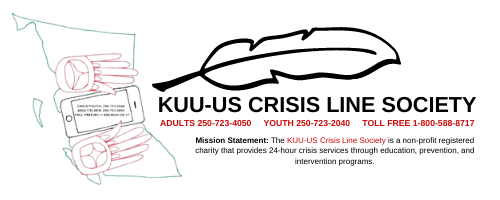Arrowsmith Baptist Church
Statement on the Discovery of 215 Children Buried at Former Kamloops Indian Residential School Site in Tk’emlups Traditional Territory
After the tragic discovery of the remains of 215 children found buried on the site of the former residential school in Kamloops, we wish to express our sincere condolences to the Tk’emlúps te Secwépemc First Nation and everyone impacted by residential schools in Canada. We are deeply saddened by this news, and our thoughts and prayers are with the Tk’emlúps te Secwépemc community, the families, and all communities affected across the country. As the truth of these atrocities continues to be revealed, our prayer is that God would begin a journey of healing and that Arrowsmith Baptist Church would be there to walk alongside with and pray for all who have been impacted.
The KUU-US Crisis Line Society provides a First Nations and Indigenous-specific crisis line available 24 hours a day, seven days a week. It’s toll-free and can be reached at 1-800-588-8717 or online at kuu-uscrisisline.com.
4589 Adelaide Street Port Alberni BC V9Y 6N2
Tel: 250-723-2323
Fax: 778-421-0440
4589 Adelaide Street Port Alberni BC V9Y 6N2
Tel: 250-723-2323
Fax: 778-421-0440
- Support is available for anyone affected by the lingering effects of residential schools, and those who are triggered by the latest reports. The Indian Residential School Survivors Society (IRSSS) can be contacted toll-free at 1-800-721-0066.
- A national Indian Residential School Crisis Line has been set up to provide support for former students and those affected. Access emotional and crisis referral services by calling the 24-hour national crisis line: 1-866-925-4419.

National Centre for Truth and Reconciliation
The NCTR is a place of learning and dialogue where the truths of the residential school experience will be honoured and kept safe for future generations.
The NCTR was created as part of the mandate of the Truth and Reconciliation Commission of Canada (TRC). The TRC was charged to listen to Survivors, their families, communities and others affected by the residential school system and educate Canadians about their experiences. The resulting collection of statements, documents and other materials now forms the sacred heart of the NCTR.
The NCTR is a place of learning and dialogue where the truths of the residential school experience will be honoured and kept safe for future generations.
The NCTR was created as part of the mandate of the Truth and Reconciliation Commission of Canada (TRC). The TRC was charged to listen to Survivors, their families, communities and others affected by the residential school system and educate Canadians about their experiences. The resulting collection of statements, documents and other materials now forms the sacred heart of the NCTR.


